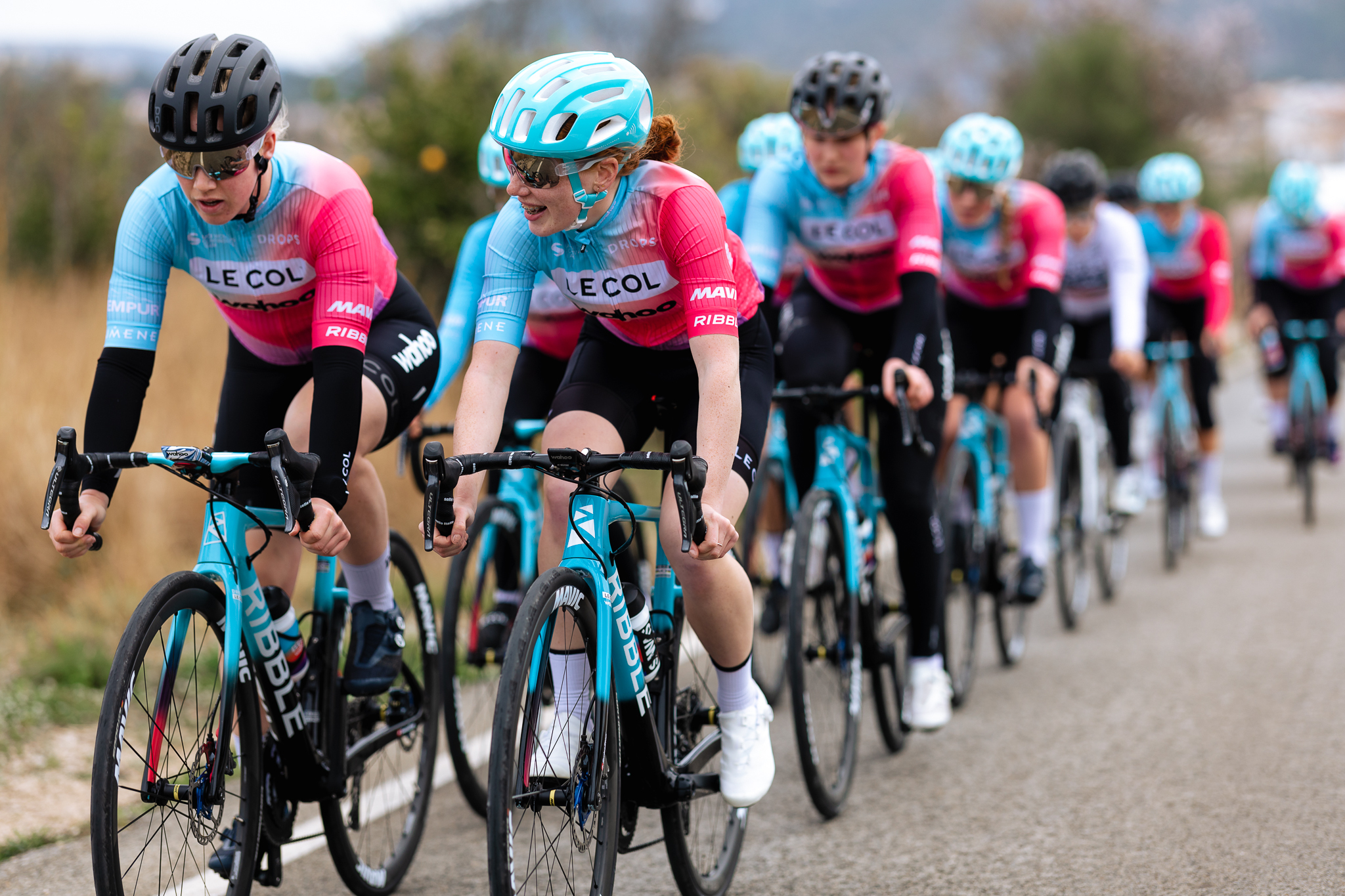
For 2022, the theme of International Women’s Day is #BreakTheBias. Professional cycling, like many areas of society, has seen men and women treated very differently – although the situation is improving with each year that passes. Amy Lauren Jones caught up with three riders of Le Col Wahoo to talk about their experiences, challenges, and achievements within the world of professional women’s racing. Breaking the bias with Le Col Wahoo!
Flora Perkins, Alice Towers and Emilie Moberg of Le Col Wahoo, formerly Drops Le Col.
Emilie Moberg has twelve years of experience in the professional peloton, but she still remembers the woman who encouraged her into the sport growing up in Norway. “I got into the sport because there was a good recruitment path to my local club. And they had a female leader, who also was a coach for the youth group,” she recalls. “She was the leader but a cyclist herself since a young age, so she was good at saying no matter if you were a boy or a girl, you could both do the same.”
Back then, Emilie barely noticed the difference between how she and her male counterparts were treated. “When I came into cycling I didn't see the big differences that much,” she says. It was only when she signed her first professional contract back in 2010 she realised that there was a gender gap in the sport that meant she and her colleagues were treated so differently.
“I could really see a big difference in cycling when I became a professional in 2010. I joined the Norwegian UCI team Hi-Tech Products and then I started doing UCI races and then I saw how big the differences are between women's cycling and men's cycling,” she recalls.
We've come a long way since 2010, let's keep it going
“Since I became pro in 2010…so much has happened. It's a totally different world that the young female cyclist meets now than what I stepped into in 2010. I've seen so many female athletes end their careers way too early, because the financial support was not there. So many had to work or study and after a few years, you're just burned out. You just think, ‘I can't do this anymore, I need to earn money, or get my studies done to start a different career or start a family or whatever.’”
“Ten years ago, it was a huge difference. And I thought, ‘I do the same work, I have the same professionalism, I travel as much, I do all the same level of races, but I have almost no money?!’ And yet, they have SO much money. They have huge teams with all all the resource they could ever wish for. But thankfully, now, things are changing and I can really see the developments happening. And that challenge has to continue, we have to believe that we are worth it, to drive it to happen.
The conversation for change was getting louder
Having so much experience in the women’s peloton, however, means that Emilie has seen first-hand the progress that women’s cycling has made in those years. “When I started in 2010, I think there was only Europeans [championships], Worlds [championships], and Olympics that were televised. There was nothing on TV, no, live streams. Literally zero. But now it's pretty rare to see an event without a live stream or being on TV. So that's a huge difference.” "The more people see these races, the more they'll be inspired to take part and want to watch. Women's cycling is so aggressive, so alive with competition it's genuinely fun to watch!"
With so many having had to call it a day all too soon, what motivated Emilie to stick at it and continue in the face of this inequality? “The conversations for change were getting louder, I'd come this far and I wasn't up for giving in just yet. I wasn't prepared to stop just because I was a woman - the opportunities would come - even if it meant that I might not make a lot of money at this point. I just love racing.”
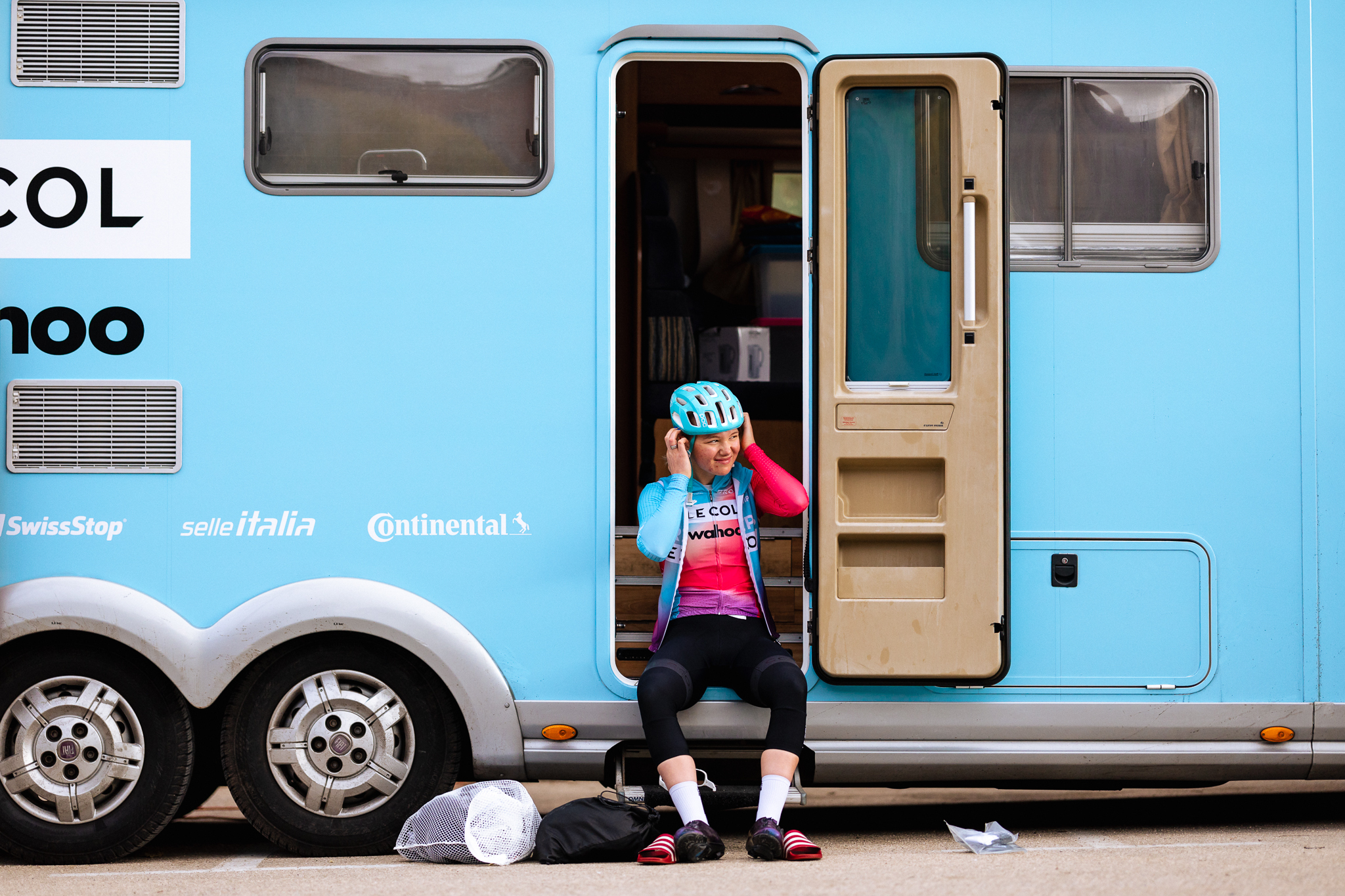
The next generation
Emilie’s teammates, Flora Perkins and Alice Towers, who are 18 and 19-years-old respectively are part of a new generation. The female professionals who will experience a very different landscape than she did. For them, they're coming of age in the sport at a time when women’s cycling is on the cusp of huge changes.
“It's come on a lot - the level and standard of the peloton is so much higher than it was. Over the next 5 years, it's going to be even stronger, so hopefully we'll see a greater depth of physical level in women's cycling,” says Alice.
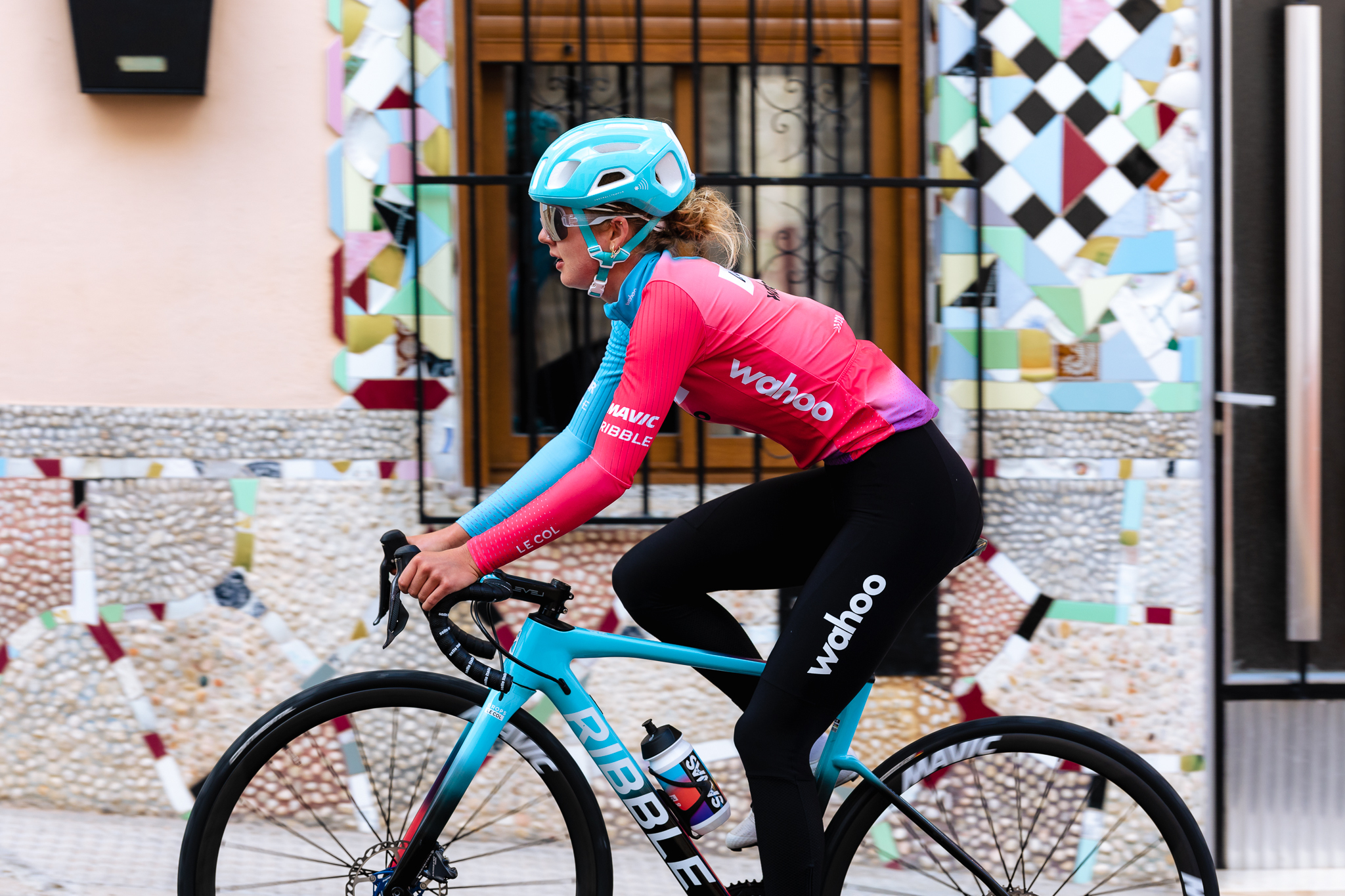
#Colourtheroad meets a colourful wall, and Alice rocking the new 2022 threads of course.
“Especially this year, we've got Le Tour de France Femmes, which is massive. And I'm really excited to see that and maybe even, hopefully be a part of it! So stay tuned, I think that's going to be crazy. Paris-Roubaix as well, that's amazing. I mean, even in the last couple of years, there's been massive developments and I think for the next couple of years, people are going to also start seeing more coverage and more exposure not just in women's cycling, but women's sport generally. And I think that'll be quite exciting to see.”
Exciting horizons
Flora is in her final year of studying for her A-Levels and recognises that the opportunity to take up racing full-time post-studying is not one that might have been as easily available to women in the past:
“For me, one of the things I'm really looking forward to is being done with my A-levels and just being able to ride my bike and train more. I think that's a great privilege to be able to just ride your bike, and for that to be all you do. Of course, there may be a point where I want to study or want to do something on the side, but I think the potential and opportunity to not need to anymore, is really exciting.”
“I've met great riders who unfortunately this wasn't the case for, because that opportunity for female cyclists simply didn't exist. So to be one of those people coming to where hopefully, that will be what my future looks like, is really exciting. That definitely motivates me, and I feel really lucky in that way. For the opportunity that others have so long challenged for.”

Flora enjoys the calm of a brief lull in the action during the team training camp in Calpe, Spain.
Creating pathways
The change takes time, and commitment in so many areas of the sport to truly get it to a more equal place. Starting at the bottom of the pyramid, all three agree that one of the most effective ways to improve the level of women’s racing is to introduce better development pathways and encourage more women and girls into riding bikes.
“I think if there's a better pathway to encourage girls, firstly, to get on a bike, then to get into racing,” says Flora. “I know within my own club, there has never been massive numbers of girls riding and that's been a real shame. You see the gradual improvements but if we can get a lot more girls racing then the level will rise.”
Emilie agrees: “I think it would be really great if we could have Nation Cups like the under-23 guys have - lets have that on the women's side too. This year we'll have the Under-23's World Championships for the first time - I mean its about time but yeah, the more the better!”
Encourage them young
“You need more encouragement with the lower level races to get the younger girls to stay in the sport. Because it can be really hard to go from junior, and then straight to WorldTour races or even those races that are not WorldTour but they have the WorldTour level,” she adds.
“I think just more exposure and more interest,” says Alice. “I think that's coming. It's getting better, and slowly but surely, getting there which is great. Thankfully being young, I'm only just starting my career. So hopefully, I'll still be going when we really start to see a difference, even in the next five years or something.”
Cycle of inspiration
Outside of racing, Alice points to the importance of women coming together to empower one another in the sport: “for women in general getting on bikes I think there's something about the group solidarity and having women's rides and having women's races where it's just for them,” she says. “And we can kind of come together in that. I think that's important as well. On a racing but also just socially, just coming together as women.”
Indeed, women supporting and inspiring other women is a theme that all three highlight, whether it is their idols, teammates, coaches, or family and friends.
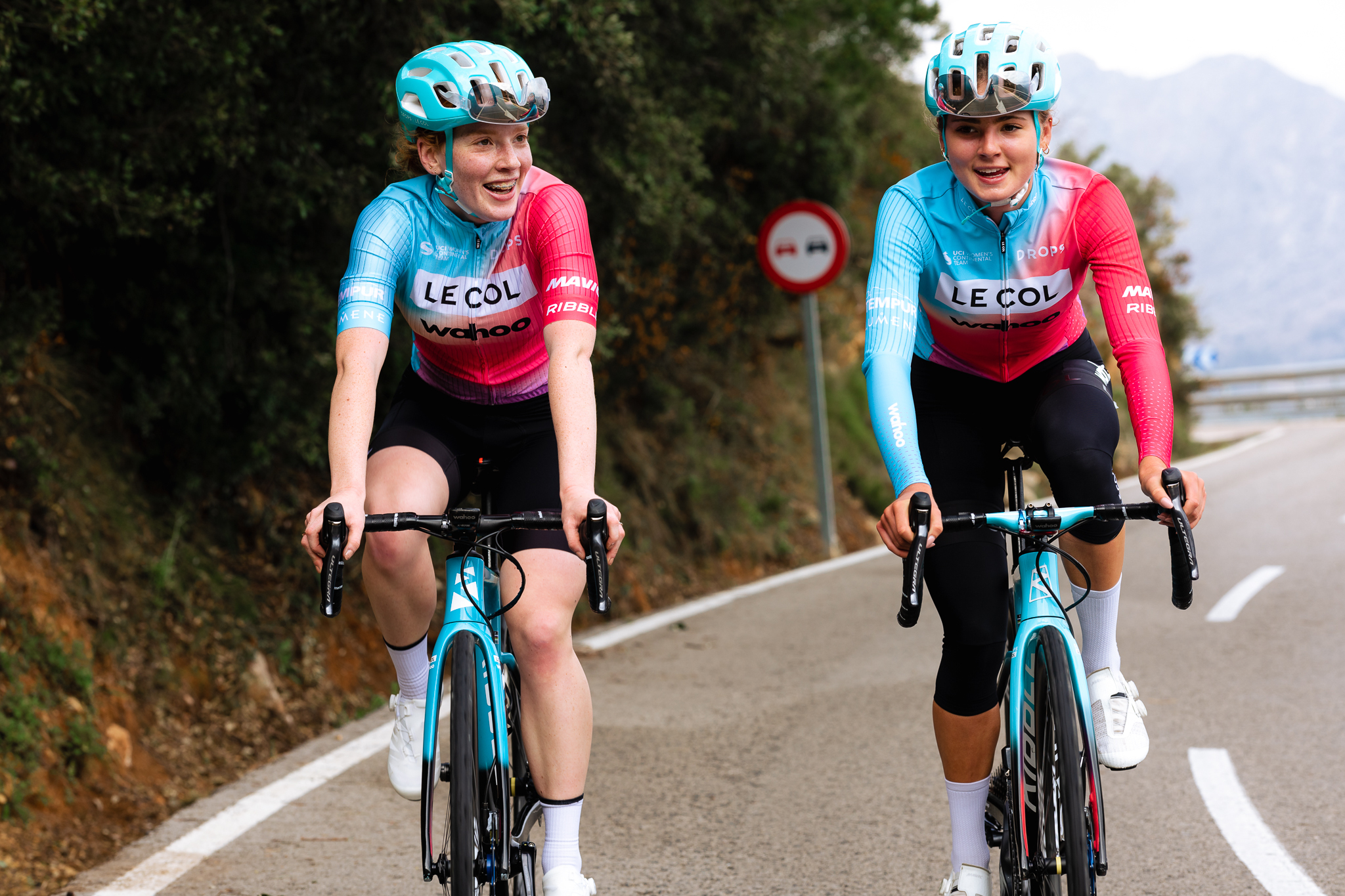
Riders like Alice and Flora represent the latest generation of cyclists who hope to see a real culture change in cycling and the addition of high-profile races to rival those of the men's tour.
“I get motivated from other riders for sure,” says Emilie. “If the team works in the race, and equally as well outside of the race, then I also perform much better. We understand each other, encourage and challenge each other to be the best we can. I think this translates generally to work and normal life everywhere. Working together, for each other, helps each other achieve...together!”
How have I ended up here
Even at just 18 herself, Flora recognises that she is a role model for younger girls: “I never really had many people in the clubs that I could look up to that I knew. I always remember that now when I go back to Herne Hill [velodrome], and chat to the girls and stuff. Because I would have loved to have had the 18-year-old to look up to who was just out racing their bike, training on another level and just really enjoying it all.”
“I think about personal progress, travelling, seeing different places, experiencing so much and meeting different people. It's crazy how many people I've met and how many places I've seen just from going out and riding my bike,” says Alice. “It's quite special. So I think new experiences empower me definitely. I do sometimes wonder, how have I ended up here just from going out and riding my bike!”
"Be comfortable with who you are”
Asked what they would say to their younger selves, Flora, Emilie, and Alice all pointed to a need for trusting in the process and maintaining self-confidence.
“Learn to be more comfortable in your own skin,” says Flora. “I think once you gain that sense of confidence in yourself... just being comfortable with who you are, there's something really freeing about that, and not being too concerned with what others might think. I'd remind myself that actually there is freedom to be whatever and whoever you want to be and to get comfortable with that feeling!”
Be part of the process
For Emilie, persistence is key: “What kept me motivated was that I really wanted to see my potential as a cyclist realised, no matter if I was earning a lot of money or not,” she says. “I'd say to my younger self to be patient. One day you will see the change, like I do now. It will come, it will change, you just have to be part of that process and you might have to take more than money from it in the meantime! The experiences, the life lessons - they're worth their weight in gold.”
Alice agrees: “Just telling myself 'just keep at it because you'll make it,” she says. “It's quite funny because I always looked up to the girls, and now I'm teammates with them, like Lizzie and Anna, they're my teammates now."
"Two years ago, I would have looked at them and thought, 'oh, wow, I wish I could be like them,' and now I'm riding alongside them. So just truly believe it will happen and make it happen by doing what you need to get there - manifest it! I'm obviously not there yet."
"Yes, I'm on my way but there's still a lot more things I need to do and learn, but I'm up for every part of it and every challenge it takes. I'm so proud to be a part of this team, to ride with these girls and be in the sport at such an exciting time.”
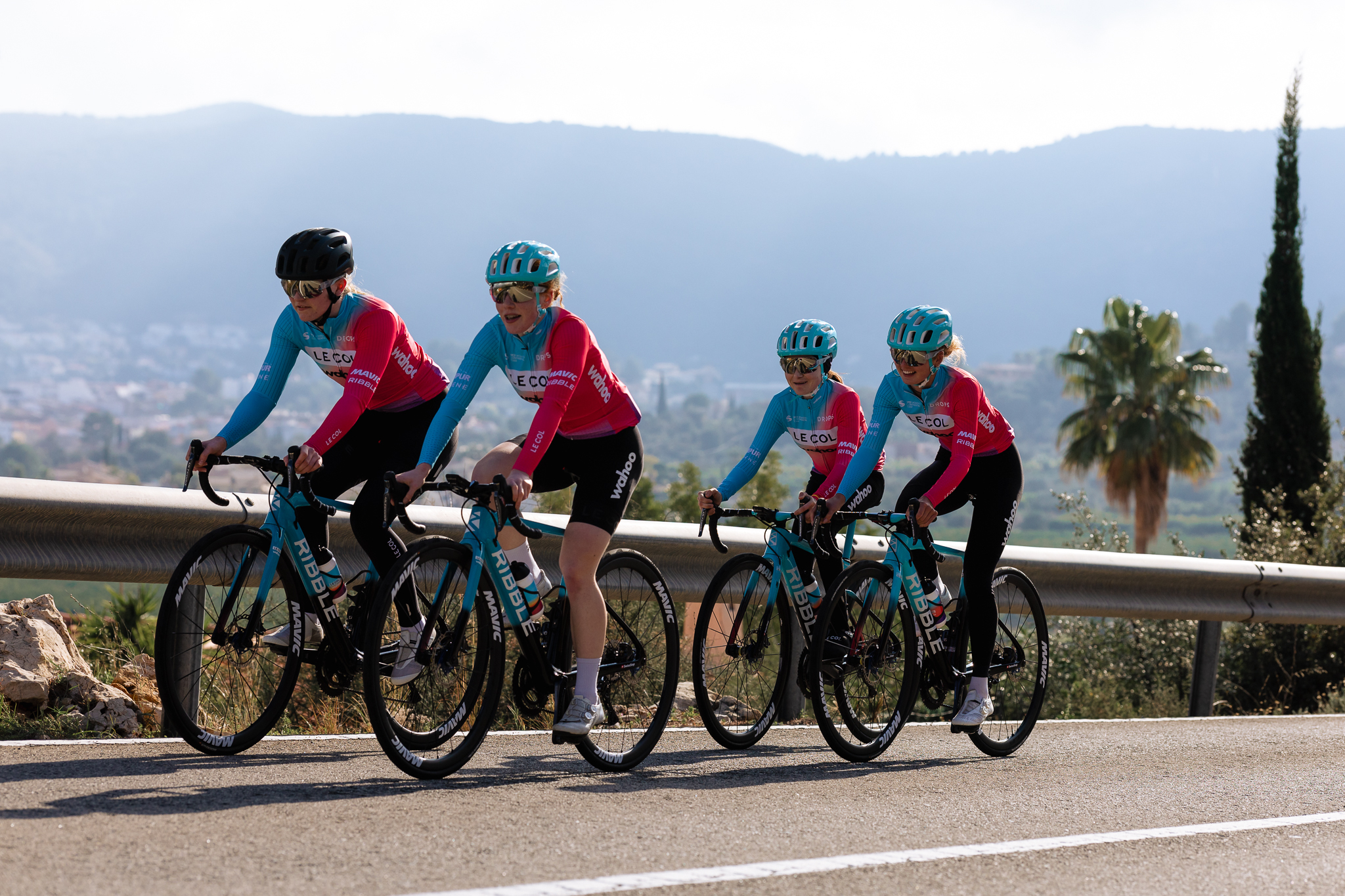
Want to stay tuned in with the girls at Le Col Wahoo? Follow their latest race results here
Speaking of inspiring women, our fellow Northerner Katie Kookaburra went on a little backpacking adventure, from Manchester to Paris! Find out more here


